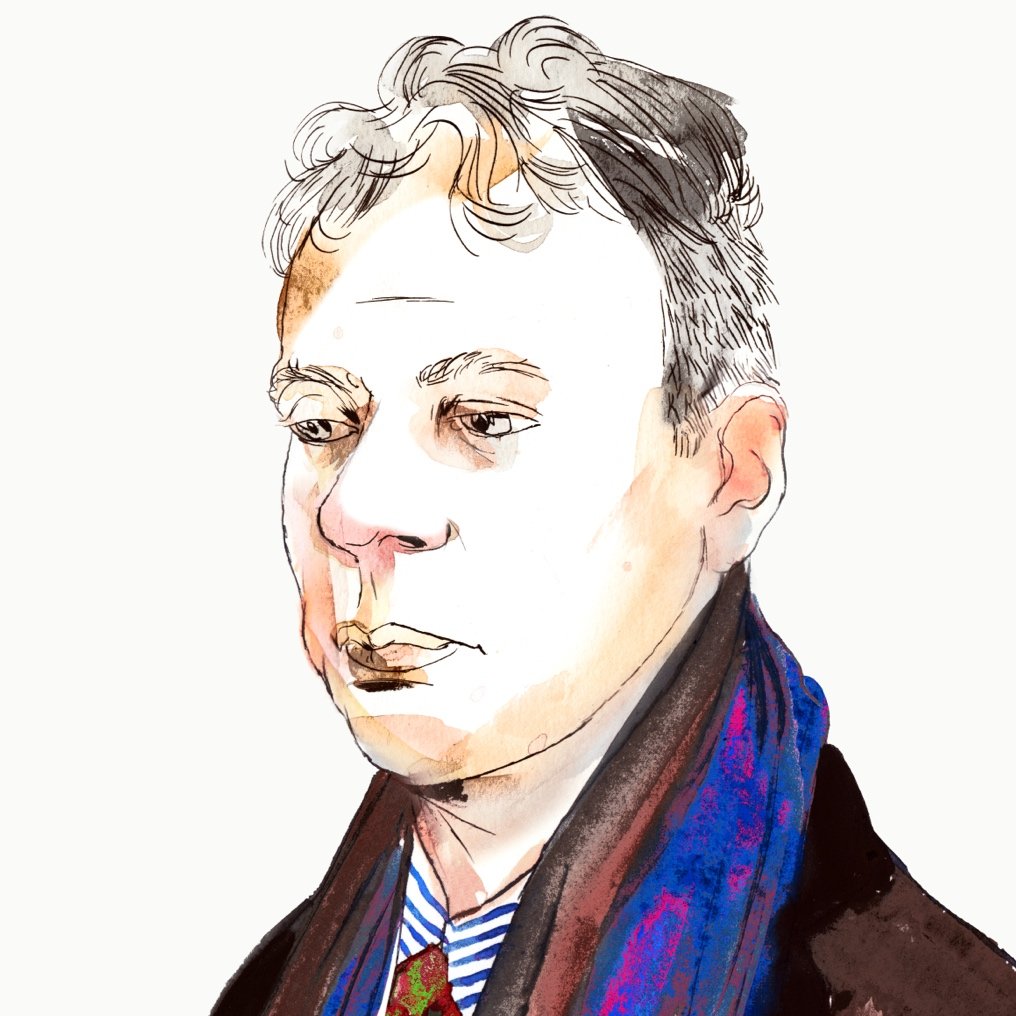See, from the hall, the sad men sit,
The television on, but their
Eyes turned from it,
Left aching for an answering stare.
See, how the soft boots of this girl
Shuffle so slowly down the stairs,
Lost in a whirl
Of cold slights and cosmetic cares.
Those are the first lines of “See,” the first poem in The Hanging God, a volume of verse by James Matthew Wilson that appeared just last month. The rhyme is consistent, the prosody tight. We have two familiar but evocative images, one of the old and one of the young, both of them wishing to be seen, to be recognized. The “sad men” stare at the television set and desire that someone look back at them, “answering” their attention with an equal concern. The girl moves slowly, conscious of how others will hear and see her, hoping that they don’t ignore her (“cold slights”) but instead favor her appearance, which she has cultivated in front of the mirror with “cosmetic cares.”
Midway through the volume is a tale of a love affair told in 14 sonnets. Or rather, a half-love affair: He doted on her, she lied to him. Straight off, he says, “She was a liar—pathological / I mean—.” She draws him in with sex (“those hot pleasures I took on her flesh / Couldn’t be forgot . . .”). He can’t resist, even as he finds out she is a “dancer” (that is, a “sex worker”), watches her take off with other guys, and endures her insults. She even advertises him on a bathroom wall as a homosexual ready for action, phone number included. The humiliation progresses, but his desire holds firm. When it ends, he tries to think it through, to chart where he went wrong and what he might have done to save her, “To think, ‘If I had done this . . .’ or ‘If she’d just . . .” That only repeats his error, of course. He can’t accept her mendacity, nor his own foolishness and weakness. But at least he has insight enough to know why he can’t even come to a rational understanding of it all. What do logic and clarity and reason amount to when he has the memory of her “As she / Straddled my hips and arched” (the phrase comes from Poem III in the sequence)? Here are the final lines of the whole thing:
The law of lust
Knows nothing of all this; says that the shape
Our lives may seem to take is blown to dust
At the hot breath of chance upon our nape.
All knowledge, judgment burn within its fire;
It leaves us just the hard stone of desire.
In the introduction to the volume, Dana Gioia says he “was startled by the dark psychological isolation” of the entries in The Hanging God. “There is nothing sentimental and little comforting in Wilson’s religious vision,” he remarks. That’s true. Wilson runs through one unpleasant experience and miserable person after another, the isolated figure in “The Recluse” who has “Felt clear contempt as someone shook my hand”; and the woman in “An Interlude” who was once a “whore” and is now “a drunkard’s wife” bruised and spat upon; and the soldier in Napoleon’s army bogged down in Russia and expecting his gray head soon to be mounted on a pike.
These are powerful expressions. They stick with you. It is why First Things has invited Wilson to give us our Fourth Annual Poetry Reading on Sunday, October 28 in New York City. Please join us.
Mark Bauerlein is senior editor of First Things.
Photo by Justin Brendel.
Become a fan of First Things on Facebook, subscribe to First Things via RSS, and follow First Things on Twitter.
The Testament of Ann Lee Shakes with Conviction
The Shaker name looms large in America’s material history. The Metropolitan Museum of Art hosts an entire…
Dilbert’s Wager
Niall Ferguson recently discussed his conversion to Christianity. He expressed hope for a Christian revival, which he…
The Real Significance of Moltbook
Elon Musk thinks we may be watching the beginning of the singularity. OpenAI and Tesla AI designer…


